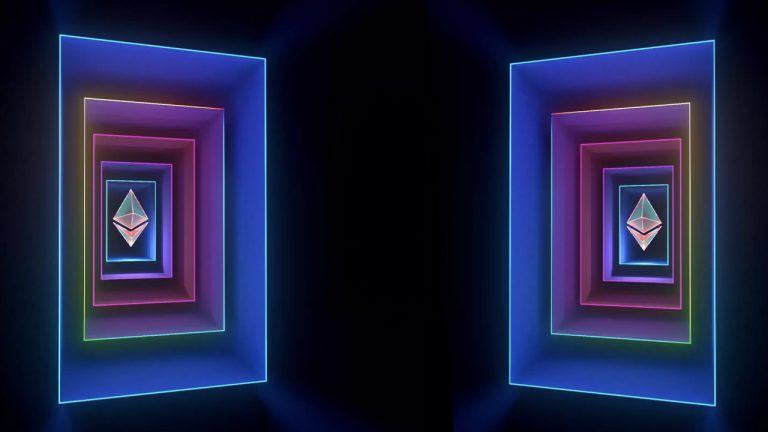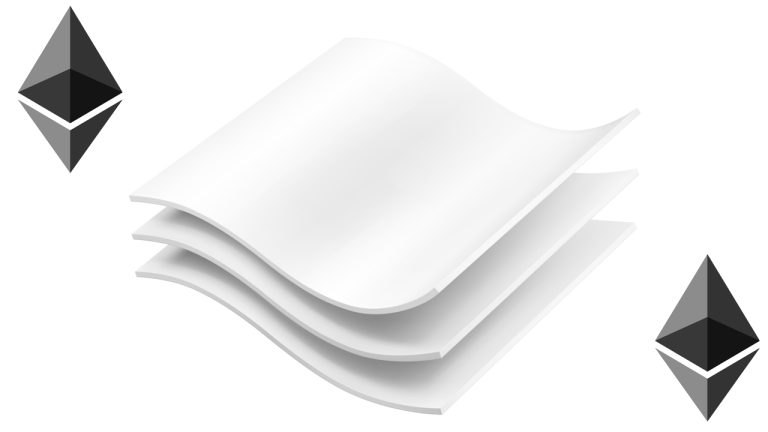 Matter Labs, a key player in the crypto industry, is restructuring, resulting in a 16% workforce reduction. The decision, made to align with evolving market demands and internal strategy shifts, was difficult but necessary, according to the CEO Alex Gluchowski. Departing employees will receive a comprehensive exit package, including salary continuation, healthcare, career support, and […]
Matter Labs, a key player in the crypto industry, is restructuring, resulting in a 16% workforce reduction. The decision, made to align with evolving market demands and internal strategy shifts, was difficult but necessary, according to the CEO Alex Gluchowski. Departing employees will receive a comprehensive exit package, including salary continuation, healthcare, career support, and […] Zksync, an Ethereum layer two (L2) network developed by Matter Labs, has launched a new community-driven governance system named ZK Nation. The system aims to enhance the governance, security, and scalability of the Zksync protocol through active community participation. ZK Nation: New Governance Framework Introduced by ZKsync According to the announcement, the ZK Nation governance […]
Zksync, an Ethereum layer two (L2) network developed by Matter Labs, has launched a new community-driven governance system named ZK Nation. The system aims to enhance the governance, security, and scalability of the Zksync protocol through active community participation. ZK Nation: New Governance Framework Introduced by ZKsync According to the announcement, the ZK Nation governance […]

Linea said it halted the sequencer as a “last resort” action to prevent additional funds from bridging out but intends to decentralize in the near future.
Ethereum layer-2 blockchain Linea’s decision to halt block production after being hacked highlights the need for layer-2 firms to prioritize decentralization sooner rather than later, says Alex Gluchowski, CEO of Matter Labs.
On June 2, more than $2.6 million in Ether (ETH) was transferred off Consensys-launched Linea after the hacker managed to exploit Linea-based decentralized exchange Velocore, Linea explained in an X post.
Linea has since resumed block production, but the team’s decision to halt the zkEVM blockchain showcased the need for decentralization on Ethereum layer was flagged by Gluchowski.

It follows a public letter from ZK researchers and top industry experts slamming the firm for “oppressive behavior.”
Matter Labs, the team behind Ethereum layer-2 scaling solution zkSync, has dropped all attempts to obtain intellectual property rights to trademark the term “ZK” — short for “zero knowledge” proofs.
Its decision came three days after several leading ZK researchers condemned the firm’s behavior “in the strongest possible terms,” iterating that ZK technologies should instead remain a “public good” that is “accessible to all.”
“As a result of these conversations, we decided to drop all trademark applications,” Matter Labs confirmed in a June 2 X post.
 Quicknode, a leading blockchain infrastructure provider, has officially expanded its offerings to include support for Zksync hyperchains, enhancing its custom chains solution portfolio. This development introduces a new level of scalability and privacy for businesses leveraging blockchain technology, facilitated by the integration of cutting-edge zero-knowledge (ZK) proofs via a partnership with Matter Labs. Quicknode Reveals […]
Quicknode, a leading blockchain infrastructure provider, has officially expanded its offerings to include support for Zksync hyperchains, enhancing its custom chains solution portfolio. This development introduces a new level of scalability and privacy for businesses leveraging blockchain technology, facilitated by the integration of cutting-edge zero-knowledge (ZK) proofs via a partnership with Matter Labs. Quicknode Reveals […]
Monthly active developers across the crypto ecosystem fell 28% year-on-year in October, though some have managed to buck the trend.
Ethereum layer-2 scaling solutions Starknet and zkSync are among the few platforms to have increased their total monthly active developer counts over the last 12 months, data shows.
While Starknet and zkSync only recorded increases of 3% and 6% respectively, the likes of Ethereum, Polygon and Solana saw their counts fa by 23%, 43% and 57% respectively over the same timeframe, according to an updated developer report by Electric Capital, which provided data up to Oct. 1.
Total monthly active developers fell 27.7% from 26,701 developers to 19,279, reflecting a wider downward trend in developers over the last 12 months.

Chainlink, Stellar, Aztec Protocol and Ripple also increased their developer counts as of Oct. 1, though their total monthly active developers were lower than zkSync and Starknet.
StarkWare’s Starknet and Matter Labs’ zkSync are layer 2 solutions aimed at scaling Ethereum through zero-knowledge rollups, which have become a focal point in 2023.
Much of Starknet’s focus of late has revolved around its “Quantum Leap” — which went live in July. It can theoretically increase Ethereum’s TPS (transactions per second) from around 13-15 to 37 TPS consistently and up to 90 TPS in some cases.
Starknet and zkSync have also been working on zero-knowledge Ethereum Virtual Machine (zkEVM) solutions to further scale Ethereum throughout 2023.
Developers at zkSync have also been building a network of “Hyperchains” to create an ecosystem of interoperable protocols and sovereign chains as part of its zero-knowledge tech stack. The firm unveiled the solution in June and hope to have a working version of it by end of 2023.
Related: 48% fewer new crypto coders last year: Report
In a thread on X on Oct. 18, Electric Capital software engineer Enrique Herreros noted many of the departing active monthly developers were “newcomers” (less than one year), while the more “established” (more than two years) and “emerging” (one to two years) developers have remained relatively steady over the last 12 months:
“We can see a decrease of -58% in Newcomers, a moderate increase of +11% Emerging Developers and a slight increase of +5% Established Developers,” Enrique said.
.@electriccapital’s Developer October Update is here! This is a lighter weight update as we prepare for our annual report.
— Enrique ⚡ (@eherrerosj) October 18, 2023
We inspected 164M+ crypto commits to find:
• 19.3K monthly active open source developers as of October 1, 2023
• Developers have decreased -27% YoY
•… pic.twitter.com/bHyMHx29El
Enrique noted this is a cyclical trend where newcomers dominate the developer market during bull markets but then fall in numbers when prices begin to plummet.
Electric Capital typically obtains its data from code repos and code commits on open-source developer platform GitHub.
Magazine: Make 500% from ChatGPT stock tips? Bard leans left, $100M AI memecoin: AI Eye

The crypto entrepreneur believes it would scare off bad actors and strengthen the state of the Ethereum network.
Matter Labs co-founder and CEO Alex Gluchowski has proposed an Ethereum court system resembling a hierarchical court system similar to the real world.
In a Sept. 2 post on X (Twitter), Gluchowski floated the idea for an “Ethereum Supreme Court” — which would work similar to the United States Supreme Court — serving as a final stop for parties to dispute smart contract issues rather than needing to take matters to a traditional lawyer or court.
“The most important function of such a system will be to protect protocols against political inference from the outside. It will serve as a great deterrence mechanism, and will elevate the role of Ethereum as a powerful network state,” said Gluchowski.
Smart contract implementation risks remain the biggest unsolved problem of Defi. L2s are equally affected.
— Alex G. ∎ (@gluk64) September 2, 2023
Let me pitch an idea: L1 Fork as the Court of Final Appeal.
First, why existing solutions don't work:
1) Time-locked upgrades are great for scheduled changes, but… pic.twitter.com/EcaogkZBH9
According to Gluchowski’s concept, disputes and emergency upgrades would be handled by a hierarchical system of on-chain courts. The final stop, however, would be an Ethereum layer-1 soft fork as the “Court of Final Appeal.”
Gluchowski said that in this system, every protocol would have its own governance with normal and emergency upgrade mechanisms, and would also designate a special contract which can trigger an appeal.
When there is an emergency upgrade to a protocol, there would be an appeal period, during which any user can submit a challenge to the higher court. However, they’ll have to put up a pre-defined bail deposit.
Each court specifies the higher court to appeal to, with the Ethereum Supreme Court serving as the final destination for challengers, Gluchowski said.
Let's chat. The main idea of the post: no human-driven court should be able to say the last word. The final appeal must always be an L1 fork.
— Alex G. ∎ (@gluk64) September 2, 2023
An example court heirachy would see protocols like Aave and Uniswap would contest matters in a court such as CourtUnchained or JusticeDAO. After those courts reach a decision, a party can appeal to the Ethereum Supreme Court.
However, there would need to be a strong social consensus for the on-chain court system to work, Gluchowski acknowledged.
He added that it would be expensive so that only “truly extraordinary” cases will be brought before it.
“[It will need to be] worthy of the attention of the entire Layer-0 (the social consensus) of Ethereum. Think of a bug in @Uniswap, a major L2, a Defi protocol with a systemic risk, etc.”
Related: On-chain tool to seize crypto is a purist’s nightmare but a must, says CEO
Gluchowski noted there were several existing solutions to such disputes already, but argued that they aren’t effective.
For example, enabling time-locked features on smart contracts isn’t suitable in emergency situations and introducing a security council can mitigate the problem, but won’t solve it, while carrying its own risks.
“A security council could only freeze the contract temporarily, requiring a token governance approval for an emergency upgrade. But now a malicious majority of undercollaterized stakers could perform an evil take-over upgrade and steal all the assets,” he explained.
Gluchowski said he and the team at zkSync — an Ethereum layer 2 scaling solution created by Matter Labs — will happily fund research into the proposal.
Magazine: ‘Moral responsibility’ — Can blockchain really improve trust in AI?

One member of the cryptocurrency subreddit pointed out that “EVM equivalent” compilers like zkSync Era does not necessarily mean it is fully “EVM compatible.”
Matter Labs, the team behind Ethereum layer 2 scaling solution zkSync, has denied that 921 Ether (ETH) worth $1.7 million will be "stuck forever" in one of its new projects.
The statement comes as one zkSync project is currently experiencing issues in transferring the funds that it accumulated during its token sale.
In a response tweet, Matter Labs confirmed that they're working to solve the problem and will soon publish a "detailed update."
Not stuck forever. We are working with the team to help them solve the problem and will publish a detailed update in a bit. Tune in.
— zkSync ∎ (@zksync) April 6, 2023
The issue appears to have been caused by its new zero-knowledge Ethereum Virtual Machine solution, "zkSync Era," not being fully Ethereum Virtual Machine (EVM)-compatible.
While the zero-knowledge rollup solution is “EVM-equivalent,” the two systems compile smart contract code ever so slightly differently from one another, which, in some cases may result in errors in the compiling process.
Several members of the “CryptoCurrency” subreddit expressed their frustration on the matter:
“Another example of why a chain shouldnt be rushing its mainnet launch. Always remember this guys, EVM compatible =/= EVM equivalent.”
"I'm all in for seeing Zero Knowledge tech becoming more and more relevant in the crypto space. However, these chains also have to take into consideration the fact that people's funds are at stake,” said another.
Related: zkSync Era launches with Uniswap and Sushi — First zkEVM on mainnet
The project is believed to be GemstoneIDO (GEMS). On the zkSync explorer page, the last four transactions requests have "failed," while exactly 921 Ether is stored in its smart contract.

Matter Labs launched zkSync Era on mainnet last week, promising that decentralized exchanges Uniswap and SushiSwap would be live in a matter of days. That hasn't happened yet, however projects including Argent, Celer Network and MetaMask are live on the network now.
Cointelegraph reached out to Matter Labs, who reiterated funds weren't stuck forever and promised an update shortly.
This is a developing story, and further information will be added as it becomes available.
Magazine: Ethereum is eating the world — ‘You only need one internet’
 Matter Labs, the team behind the Ethereum layer two (L2) scaling protocol Zksync, revealed the developers plan to launch a layer three (L3) proof of concept called “Opportunity” in the first quarter of 2023. The team says that the prototype of L3 will be built on top of L2 and developers and Zksync users can […]
Matter Labs, the team behind the Ethereum layer two (L2) scaling protocol Zksync, revealed the developers plan to launch a layer three (L3) proof of concept called “Opportunity” in the first quarter of 2023. The team says that the prototype of L3 will be built on top of L2 and developers and Zksync users can […]
As outlined by its creators, zkDAO will be community-driven and is currently seeking contributors.
On Thursday, a proposal to fund decentralized autonomous organization zkDAO passed via treasury protocol BitDAO with close to 200 million votes cast. The proposal was authored by Matter Labs — the organization behind Ethereum scaling protocol zkSync — and Mirana Ventures.
Utilizing zk-Rollups, zkSync and its family of technologies will build layer-2 infrastructure capable of returning succinct proofs to the Ethereum network without sending the entire data. The result, if implemented, would mean a vastly speedier network. Zero-knowledge-based solutions have attracted much attention in recent months due to recurrently high levels of congestion on Ethereum, as well as exuberant gas fees. For example, Polygon is committing $1 billion to zero-knowledge tech firms and protocols. Aside from scaling, zero-knowledge proofs can also be used to obscure transactions and enhance individual privacy, such as via the Panther protocol.
As for BitDAO, it is currently one of the largest decentralized treasuries, with a balance of over $2.5 billion. In November 2021, the entity allocated $500 million to a decentralized blockchain gaming proposal. Jonathan Allen, head of Mirana Ventures and a BitDAO contributor, gave the following remarks regarding the development:
“This proposal will not only benefit the collective Ethereum scaling effort but will provide tremendous value to the BitDAO ecosystem, which continues to act as a leading force across industries as it creates entirely new purpose-built DAOs that also need to scale effectively on-chain.”